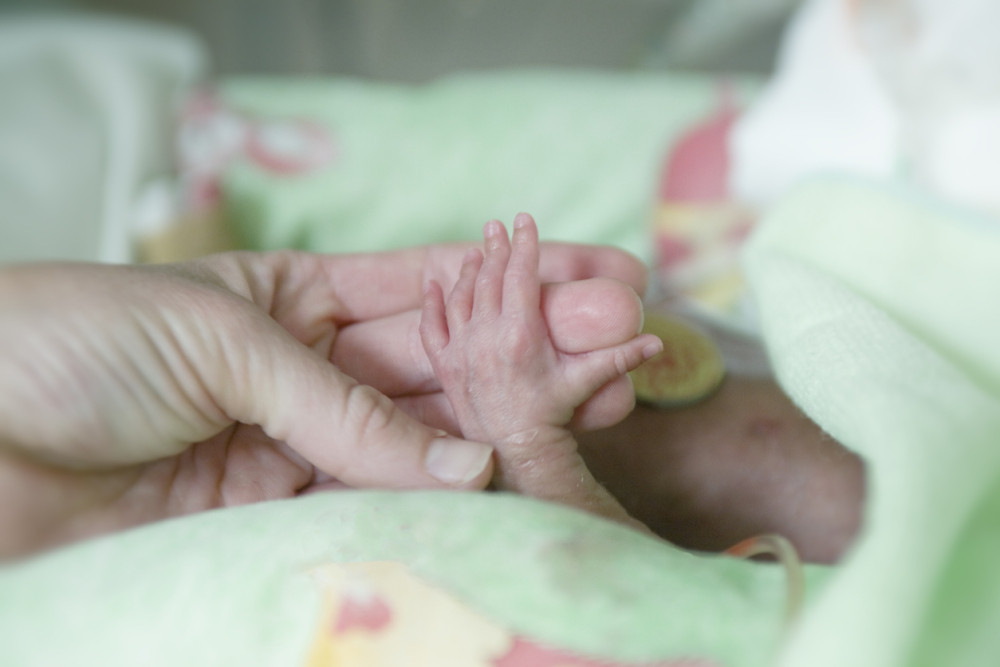More specialised expertise and resources are needed to provide appropriate care for extremely premature babies

Credit: brazzo
Published on Tuesday, 07 November 2023
More specialised expertise and resources are needed to provide appropriate care for extremely premature babies
Research using data collected by the MBRRACE-UK collaboration has shown that a change in care guidelines for babies born from 22 weeks of pregnancy requires more specialised expertise and resources to provide appropriate care. The study is published in BMJ Medicine.
Updated national guidance in 2019 from the British Association of Perinatal Medicine set out various pregnancy and birth factors that should inform decision making and parental discussions for premature babies born from 22 weeks onwards. The researchers sought to evaluate the impact of this new national guidance on care provision.
The researchers analysed retrospective data from two national datasets in England and Wales: MBRRACE-UK and the National Neonatal Research Database (NNRD) from January 2018 to December 2021. These datasets include all babies born from 22 weeks onwards in England and Wales, with data on babies who die before or during birth, and deaths within 28 days of birth, as well as care and outcomes up to NHS neonatal care discharge for all babies. This enabled a focus on all babies alive at the start of labour as other more selective populations may be biased.
The researchers focused on survival to admission for neonatal care; length of neonatal unit stay in days; survival to discharge home or to other healthcare settings; and survival to discharge without major health issues, such as retinopathy (eye disease) of prematurity and severe brain injury.
Key findings:
- 5,623 premature babies were born at 22-24 weeks, 1,604 of whom were stillborn. Of the 4,019 babies alive at the start of labour, 1,001 (25%) were born at 22 weeks, 1,380 (34%) were born at 23 weeks, and 1,638 (41%) were born at 24 weeks;
- Among the babies who were alive at the start of labour at 22 weeks, 59 out of 524 (11%) received respiratory life support in 2018-19. In 2020-21, the number had increased three-fold to 183 out of 477 births (38%);
- Admissions for babies who were alive at the start of labour to neonatal units increased from 39 babies (7%) to 134 babies (28%), while survival to discharge from neonatal care increased from 13 babies (3%) to 39 babies (8%);
- The characteristics of the babies receiving respiratory life support changed between 2018-19 and 2020-21 with increases in smaller babies - weighing under 500g - (from 46% to 64%), and in babies born in the earlier part of the 22nd week (from 19% to 31%);
- The numbers of babies admitted to neonatal care units who died before discharge also increased from 26 in 2018-19 to 95 in 2020-21;
- The total number of care days provided to all babies born at 22 weeks was 2535 in 2018-19 (1268/year) and 6840 in 2020-21 (3420/year).
Professor Lucy Smith, MBRRACE-UK collaborator and Professor of Perinatal Health at the University of Leicester, said,
Our analysis suggests that these rapid and substantial changes were associated with the timing of the introduction of the British Association of Perinatal Medicine guidance. Although the recommendation was intended to be risk based, we speculate that, on the contrary, approaches have moved from being selective to more widespread provisions of survival-focused care. This change would explain the increase in the proportion of babies at high risk who received survival focused care. While survival for babies born at 22 weeks remains low, the numbers receiving survival focused care and being admitted to neonatal units has tripled. Although this finding suggests that the total number of survivors has increased, this result also means that the number of babies who died after intensive care also increased. Maternity care was also affected because of likely increases in in-utero transfers (that is, moved to a specialist hospital before birth), as well as impacts on paediatric and educational services to provide for long-term health and developmental needs. This change represents an important increase in workload and need for specialised healthcare and educational resources and the impacts affect babies, families, healthcare professionals, and the healthcare system.
Dr Cheryl Battersby, Clinical Senior Lecturer in Neonatology at Imperial College London said,
As clinical experience caring for this vulnerable group of babies grows, a research priority is to identify reliable prognostic factors in the first few days and weeks. International collaboration is continually needed to bring together clinicians and researchers worldwide; to learn from each other and improve the care of babies born at 22 weeks' gestation to improve morbidity-free survival. The increased use of standardised robust denominators for the calculation of survival estimates, such as babies alive at the onset of care in labour, is a key part of ensuring increased comparability of international findings that can aid future improvements.
This is an observational study, and the researchers acknowledge various limitations to their findings. For example, their definition of survival-focused care was mainly limited to provision of active respiratory care because this information was uniformly available. Additionally they were only able to assess short-term outcomes.
